| | | | | | | Presented By Babbel | | | | Axios World | | By Dave Lawler · Oct 17, 2022 | | Welcome back to Axios World. - In tonight's edition (1,812 words, 7 minutes) we're heading to the Chinese Communist Party Congress and looking at the data behind Xi Jinping's decade in power.
- But first to the U.K., where things haven't been going so well for Liz Truss.
New arrival? Subscribe. | | | | | | 1 big thing: U.K.'s Truss abandons her agenda to stem market meltdown | 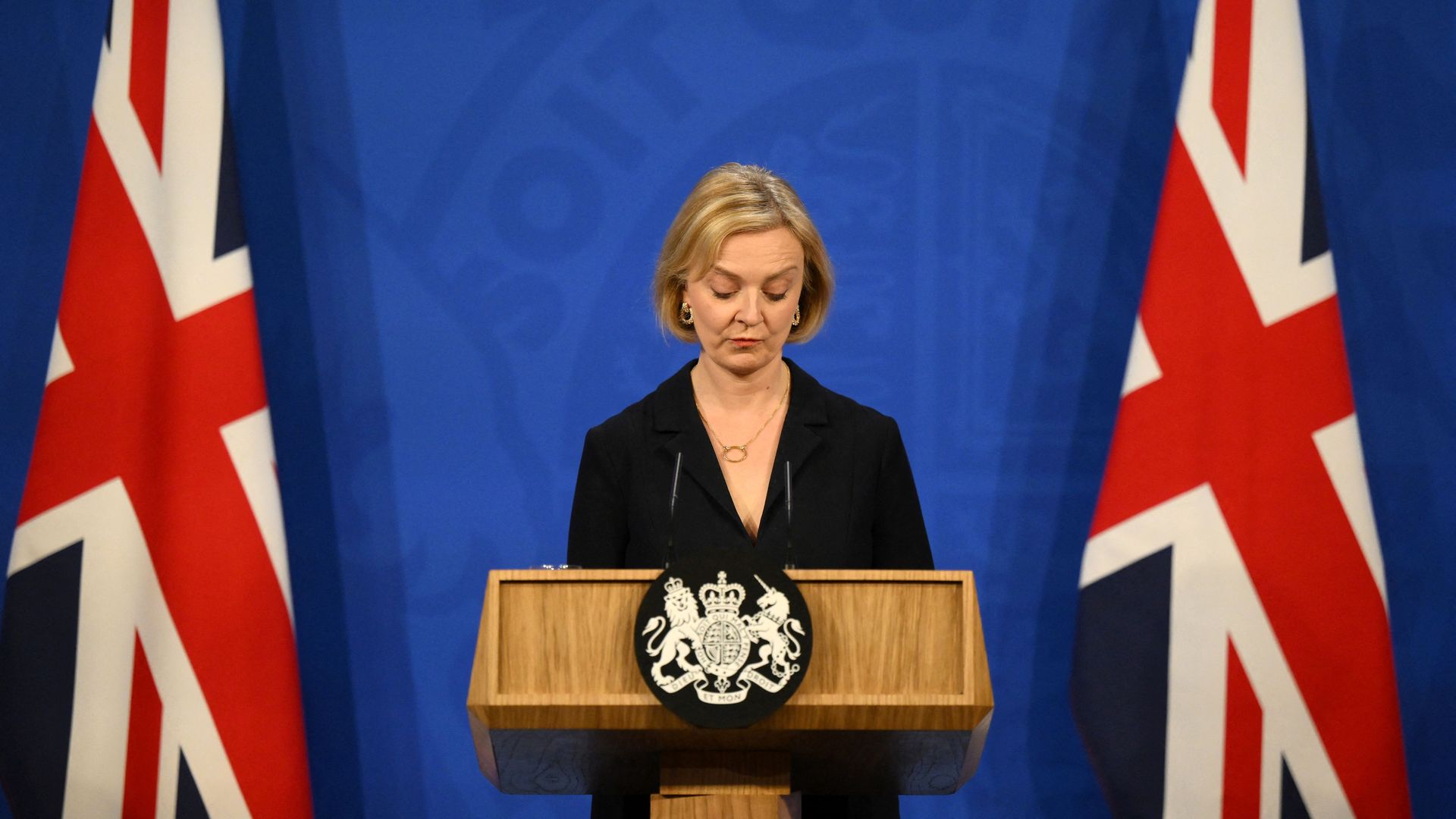 | | | Liz Truss during a press conference on Friday. Photo: Daniel Leal/Pool via Getty Images | | | | U.K. Prime Minister Liz Truss is still officially in charge, but hardly seems to be in control. The big picture: Truss unleashed chaos in the financial markets three weeks ago with a plan to slash taxes while simultaneously funding massive energy subsidies. Her finance minister is now gone, along with most of that plan and arguably her authority. Driving the news: It was not Truss but House of Commons leader Penny Mordaunt who appeared before Parliament today to explain the departure of Truss' close ideological ally Kwasi Kwarteng as Chancellor of the Exchequer. - Mordaunt said Truss had been detained by "urgent business," then later clarified, perhaps unhelpfully, that "the prime minister is not under a desk."
- Kwarteng's replacement, Jeremy Hunt — a relative moderate picked in part because he's not loyal to Truss — then stepped up to the dispatch box to explain that "nearly all" of Truss' trademark tax cuts would be reversed. Truss did turn up and sit silently at Hunt's side for a time before departing to jeers.
How it happened: Truss won the inter-party race to replace Boris Johnson by promising "bold" tax cuts, including for the rich, in order to boost economic growth. - Truss' leadership rival Rishi Sunak had warned that she risked supercharging inflation and forcing up interest rates — claims she dismissed as "project fear" from the "anti-growth coalition."
- In practice, the Truss-Kwarteng package spooked the markets so badly that the Bank of England staged an emergency intervention to ease a run on the pound.
- Unable to steady the situation, Truss took the humiliating step of handing economic policy over to Hunt.
State of play: Hunt acknowledged today that the government was partially to blame for the U.K.'s dire fiscal straits and said "nothing is off the table" — including potentially scrapping Truss' funding pledges for defense and pensions — to restore "stability." His performance seemed to calm the markets, for now. - Much damage has already been done. As Axios chief economic correspondent Neil Irwin notes, Brits are facing higher mortgage costs due to the chaos Truss unleashed without getting the tax cuts she promised.
- Polls now consistently put the Conservatives more than 30 points behind Labour. Remarkably, one new poll out today finds that just 21% of 2019 Conservative voters think Truss would be a better prime minister than Labour leader Keir Starmer.
With her platform shredded and Hunt now overseeing the economy, the question Truss keeps getting from journalists (and some Conservative MPs) is, "Why are you still here?" - Voters generally feel the same way, says James Johnson, whose firm JL Partners has been conducting focus groups on Truss. "There was anger toward Boris Johnson. With Liz Truss, it's more despair. People think she's not up to the job."
- Worse still, voters don't think she's looking out for them, Johnson says. "You have to be caring or competent," he says. "She's lost both."
What to watch: The Westminster consensus is increasingly that Truss is on her way out, but with no election due for two years, members of Parliament from her own party would have to give her the shove. Johnson thinks that could happen within days, and will almost certainly happen before the next general election. - It's unclear if Conservative MPs would be able to coalesce around a single candidate — such as Sunak or Hunt — to avoid another leadership contest so soon. Other possible contenders include Mordaunt and Defense Secretary Ben Wallace.
The latest: Truss told the BBC this evening that "mistakes were made," but she had acted in the national interest to rectify them and will lead her party into the next general election. Worth noting: If Truss is forced out, the U.K. will have its fifth prime minister since the 2016 Brexit referendum — as many as in the previous 37 years. |     | | | | | | 2. Young women lead the way in Iran's protests | 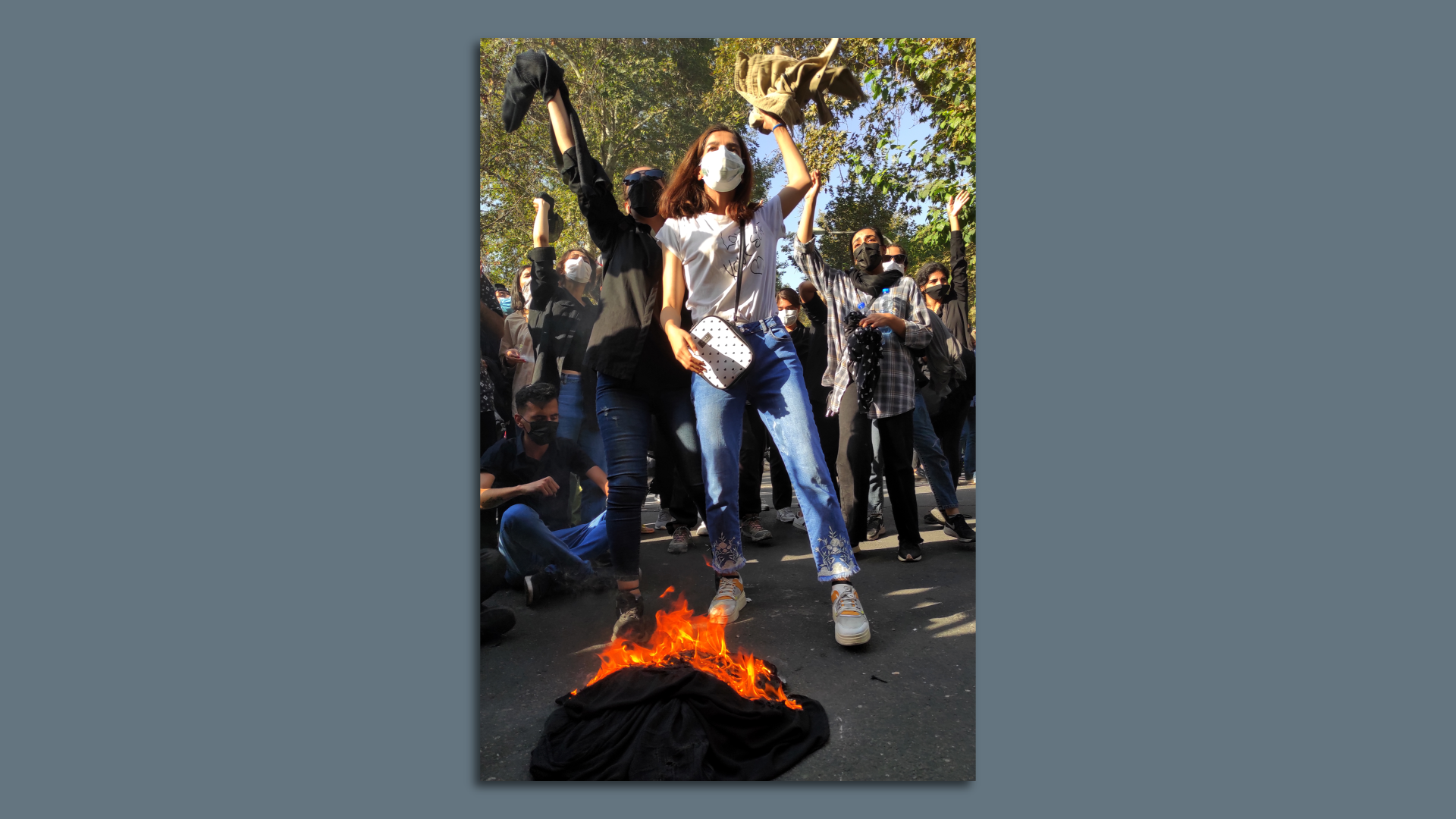 | | | Iranian protesters set their scarves on fire while marching along a street on Oct. 1 in Tehran, Iran. Photo: Getty Images | | | | Gen Z protesters and young women in particular are at the forefront of Iran's protests as they enter a second month, Axios' Ivana Saric writes. The big picture: The protesters have faced an increasingly hardened government crackdown, including deadly violence by security forces, internet restrictions and mass arrests. But young people continue to go to the streets — and find ways to protest online. Catch up quick: Videos have proliferated in recent weeks of girls and young women taking off and defiantly waving their headscarves in Iranian schools and on the streets, shouting "death to the dictator," referring to 83-year-old Supreme Leader Ali Khamenei. - "The fear barrier is broken... we're not just seeing this in major cities but in many smaller towns all across Iran," Merissa Khurma, program director of the Middle East Program at the Wilson Center, tells Axios.
The nonprofit Iran Human Rights estimated on Monday that 27 children were among the at least 215 people killed in the protests since they began. - The deputy commander of Iran's Revolutionary Guard Corps said this month that the average age of most people arrested during the protests is 15 years old.
- Iran's education minister said last week that some school children detained in the protests were taken to "psychological institutions," independent reformist Iranian outlet Shargh reported.
What to watch: "There's no going back to the same status quo because I think those taboos have been broken," says Assal Rad of the National Iranian American Council. Read the full story. |     | | | | | | 3. CCP gathers for 20th Party Congress | | A meeting of top Chinese Communist Party elites, held only once every five years, began Sunday in Beijing, Axios China Reporter Bethany Allen-Ebrahimian writes. Why it matters: The roughly 2,300 gathered party leaders are expected to anoint President Xi Jinping for a precedent-defying third term, meaning his authoritarianism and assertive foreign policies are likely to continue for at least another five years. By the numbers: Since Xi first assumed power in late 2012, China's economy has more than doubled, and overtook the U.S. in 2017 based on purchasing power parity (U.S. GDP is still larger overall).  Data: World Bank; Chart: Tory Lysik/Axios Yes, but: Economic growth slowed over the course of Xi's tenure, then fell dramatically in 2022 as strict lockdowns brought cities as large as Shanghai to a standstill for weeks.  Data: IMF; Chart: Tory Lysik/Axios The birth rate fell…  Data: China National Bureau of Statistics; Chart: Tory Lysik/Axios Military spending climbed…  Reproduced from CSIS ChinaPower; Chart: Axios Visuals And human rights conditions worsened.  Data: Freedom House; Chart: Tory Lysik and Kavya Beheraj/Axios What to watch: Besides the big announcement of Xi's third term and other appointments, the congress is expected to pass a revision to the Party's constitution — likely to further enshrine Xi's status as the country's paramount leader, perhaps even as "party chairman," a term not used since Mao Zedong ruled China as a dictator. Go deeper. |     | | | | | | A message from Babbel | | Polish up your Polish — or 13 other languages | | |  | | | | Not only can you learn to say "dziękuję ci" ("thank you" in Polish!) with Babbel, but it also helps get your pronunciation right from the start. A language learning platform developed by 150 linguists, Babbel has lessons, exercises, videos and more. Speak a new language in as little as three weeks. | | | | | | Bonus: Where in the world? | 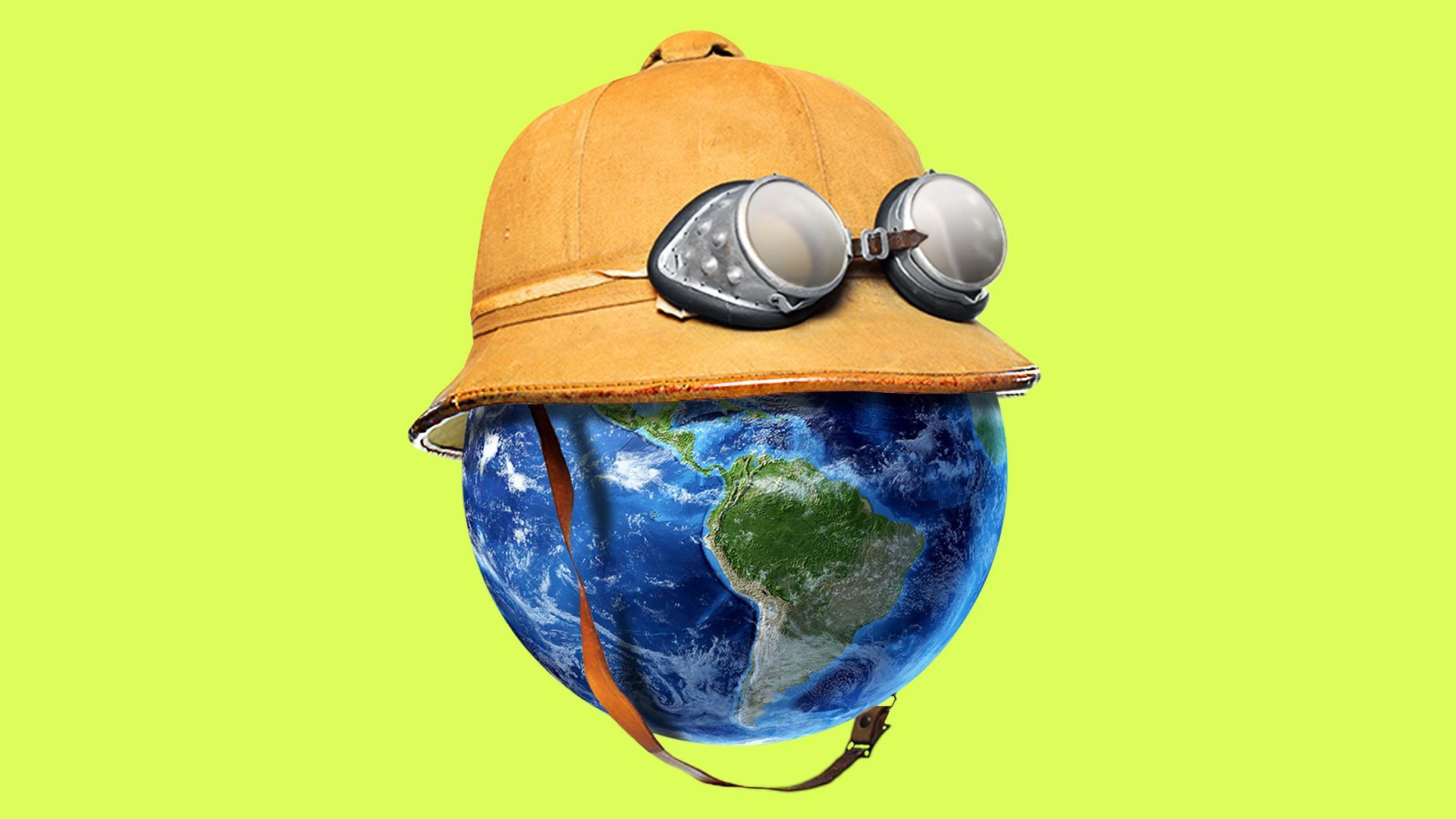 | | | Illustration: Natalie Peeples/Axios | | | | In the following countries, the capital city is not the most populous. Can you name the city that is? - U.S.
- Canada
- Turkey
- Nigeria
- Brazil
- South Africa
- Australia
- Pakistan
- Myanmar
- Tanzania
- Belgium
- Kazakhstan
- Morocco
- New Zealand
- Gambia
Worth noting: In some cases (No. 10, for example), some of the functions of a political capital take place in the larger city, but it's not the official capital. Scroll to the bottom for answers. |     | | | | | | 4. What Xi's saying | 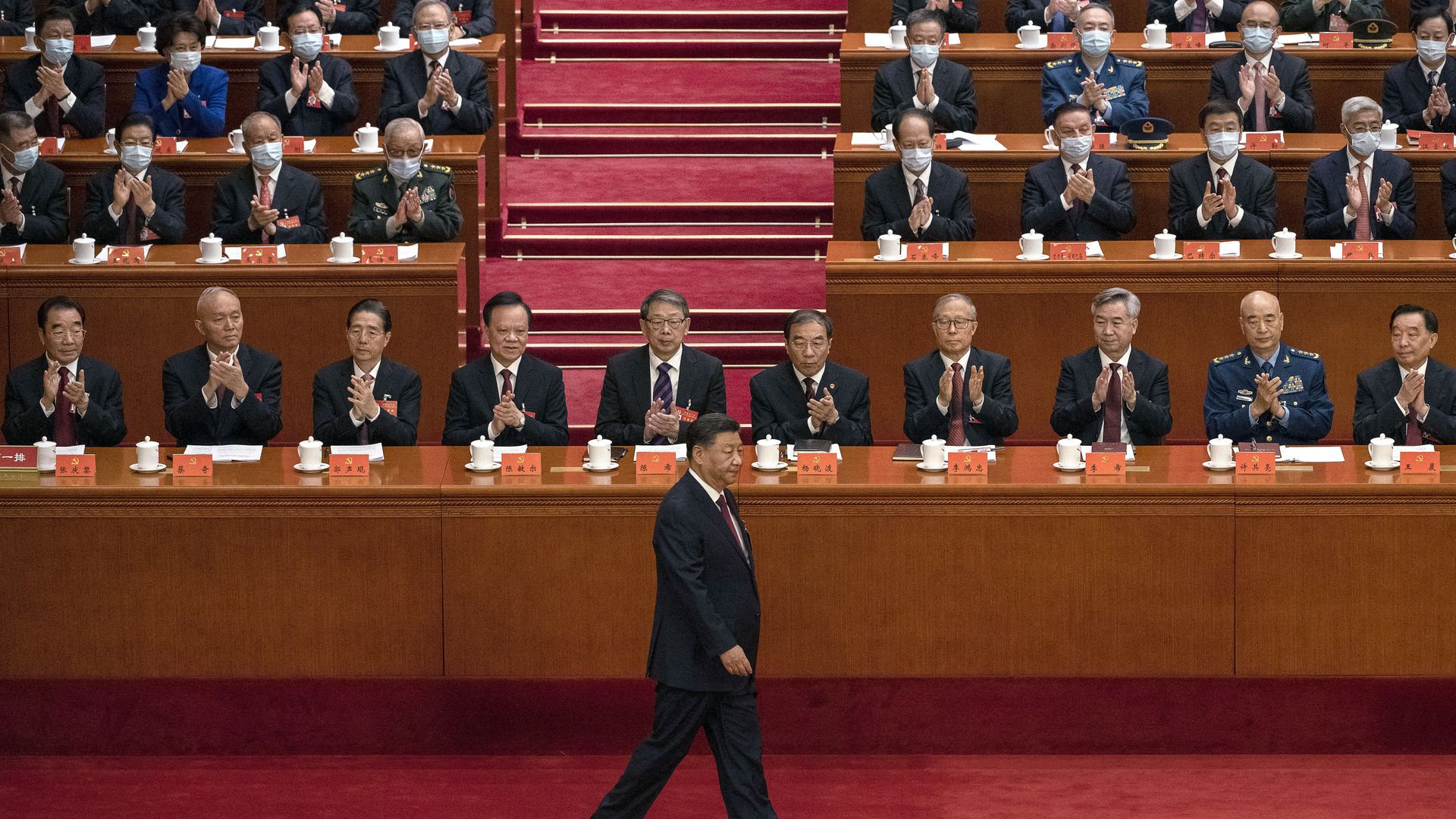 | | | Xi Jinping walks to the podium. Photo: Kevin Frayer/Getty Images | | | | Axios fellow Han Chen breaks down four key aspects of Xi's address. 1. Xi raised the pandemic just twice, but said the "dynamic-zero COVID" approach had protected the Chinese people, and that the party had taken "critical and positive steps" to balance pandemic control with socioeconomic development. - Between the lines: Xi's contention that the Chinese economy can grow sustainably under "zero-covid" has come under growing skepticism from economists and investors.
2. Xi discussed Taiwan at length, emphasizing that China "will try its best to reunify with Taiwan peacefully," but will use force if necessary. - Our thought bubble: Xi stuck to Beijing's well-known positions on Taiwan, though he also took a swipe at "foreign interference" (perhaps with House Speaker Nancy Pelosi's visit in mind).
3. Xi didn't mention Ukraine or other geopolitical developments, but he did criticize "Cold War thinking." - Between the lines: Xi offered some not-so-subtle rebuffs of the U.S.-led global order while seeking to frame China's ballooning influence abroad as "peaceful."
4. Xi said China's push for economic growth will continue to focus on the "real economy" as opposed to "virtual economy" — a recommitment to areas like manufacturing and transportation that have powered China's breakneck growth for decades. - Yes, but: Economic growth is cooling down fast, with cracks showing in critical sectors such as real estate. Some analysts argue Xi's efforts to transition from a "high-speed" to a "high-quality" development model could be hampered by the party's tendency to bail out industries deemed essential to national security and social stability.
|     | | | | | | 5. Global news roundup |  | | | Luiz Inácio Lula da Silva (L) debates Jair Bolsonaro in Brazil. Photo: Nelson Almeida/AFP via Getty Images | | | - At least 603 people have died in Nigeria's worst flooding in a decade.
- Chadian junta leader Mahamat Idriss Deby Itno, who took power last April after his father was killed by rebels, has effectively granted himself another 24 months in power.
- Jair Bolsonaro and Luiz Inácio Lula da Silva took part in their first head-to-head debate ahead of Brazil's Oct. 30 presidential runoff. The campaign has grown even nastier as it approaches the finish line.
- Russian troops have begun arriving in Belarus as part of what Minsk says will be a 9,000-strong contingent to help protect its borders, but which Kyiv believes could be part of an effort to pull Belarus into the fight and open another front in the war.
- Four people were killed in Kyiv on Monday in multiple explosions that Ukrainian officials said were caused by Iranian drones sent by Russian forces.
More Ukraine headlines: |     | | | | | | 6. What we'll be watching: Sticking to soccer | 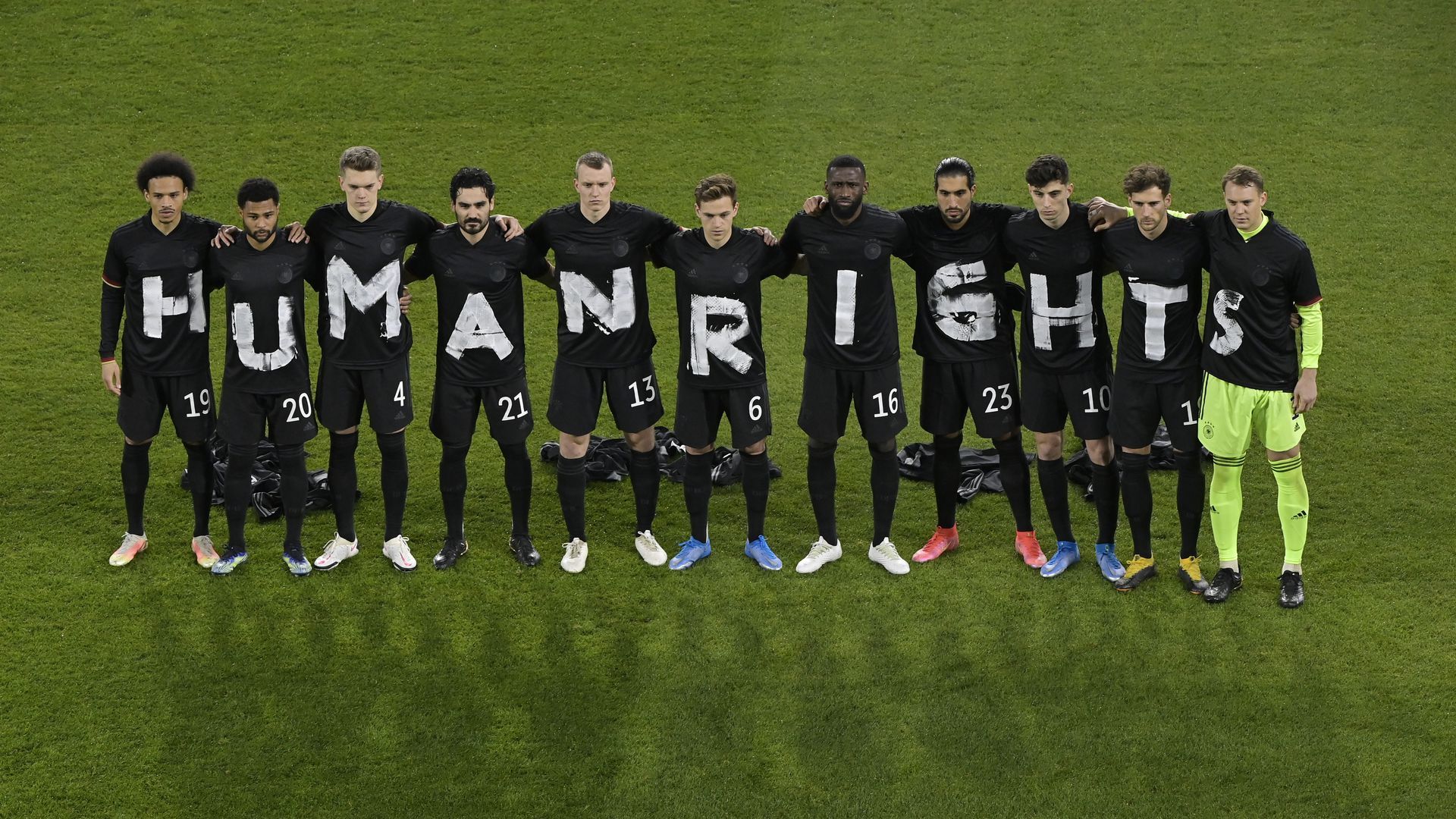 | | | German players wear shirts that spell out "Human Rights" prior to a World Cup qualifying match in March. Photo: Tobiss Schwarz/Getty Images | | | | Next month's World Cup is already controversial due to host nation Qatar's human rights record, but Americans won't hear about that while watching the games, Axios' Jeff Tracy writes. What they're saying: Fox Sports executive producer David Neal told the Philadelphia Inquirer that its World Cup coverage will focus only on soccer. - "Our approach is clear, and it's identical to what it was four years ago in Russia," Neal said.
- "If a story affects the field of play, if it affects the competition in the tournament, we will cover it fully. If it doesn't, if it's ancillary to the tournament, if it has to do with the construction of the venues or what have you, we're going to leave that to other entities to cover."
|     | | | | | | 7. Stories we're watching | 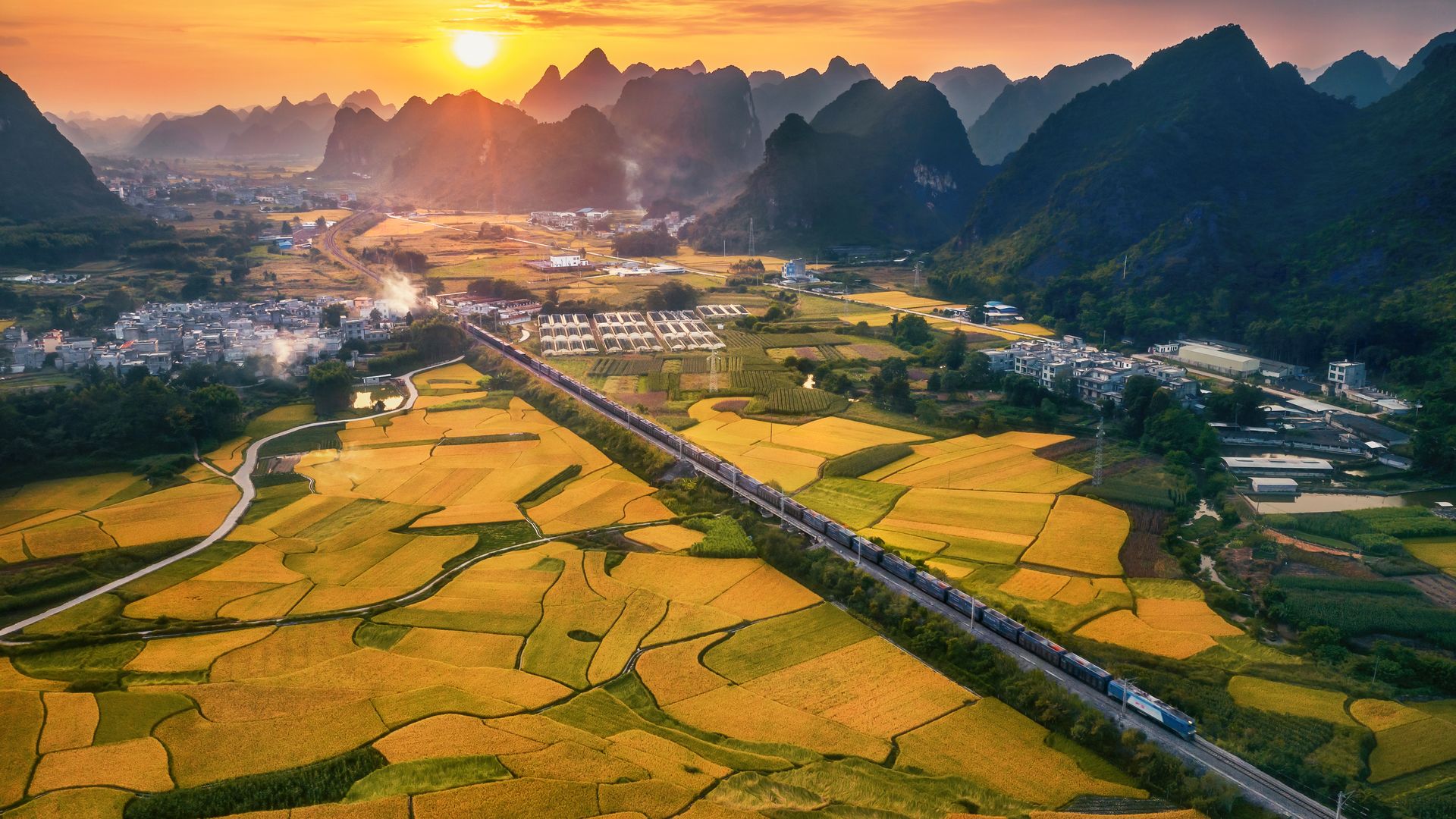 | | | Harvest season in the paddy fields of Baise, Guangxi, China. Photo: CG via Getty Images | | | - Iran's Evin prison fire leaves at least 8 dead, 57 injured
- BTS to serve mandatory military service in South Korea
- Kremlin "not concerned about" Brittney Griner's release
- Turkey coal mine explosion leaves 40 dead
- White House "very disappointed" by Palestinian president's remarks to Putin
- Russia labels deadly training ground shooting as terrorism
- Pope Francis wants UN reform
Quoted: "Opinionated, domineering, arrogant and offensive . . . No willingness to change... she is someone you can't get along with." — Silvio Berlusconi's apparent thoughts on his coalition ally Giorgia Meloni, based on a note Berlusconi was holding in Parliament. "One point was missing from Berlusconi's list: that I cannot be blackmailed." — Meloni's reply. Coalition talk going smoothly, then? |     | | | | | | A message from Babbel | | The easy way to connect with anyone from (almost) anywhere | | |  | | | | With Babbel in your back pocket, language barriers won't keep you from meeting new people. What you need to know: Across 10-minute expert-curated language lessons, you could learn to have real-world conversations in 1 of 14 languages in just three weeks. Get up to 55% off your subscription. | | | | Answers: 1. New York; 2. Toronto; 3. Istanbul; 4. Lagos; 5. São Paulo; 6. Johannesburg; 7. Sydney; 8. Karachi; 9. Yangon; 10. Dar es Salaam; 11. Antwerp; 12. Almaty; 13. Casablanca; 14. Auckland; 15. Serekunda |  | | Are you a fan of this email format? It's called Smart Brevity®. Over 300 orgs use it — in a tool called Axios HQ — to drive productivity with clearer workplace communications. | | | | | | Axios thanks our partners for supporting our newsletters. If you're interested in advertising, learn more here.
Sponsorship has no influence on editorial content. Axios, 3100 Clarendon Blvd, Arlington VA 22201 | | | You received this email because you signed up for newsletters from Axios.
Change your preferences or unsubscribe here. | | | Was this email forwarded to you?
Sign up now to get Axios in your inbox. | | | | Follow Axios on social media:    | | | | | |
















No comments:
Post a Comment